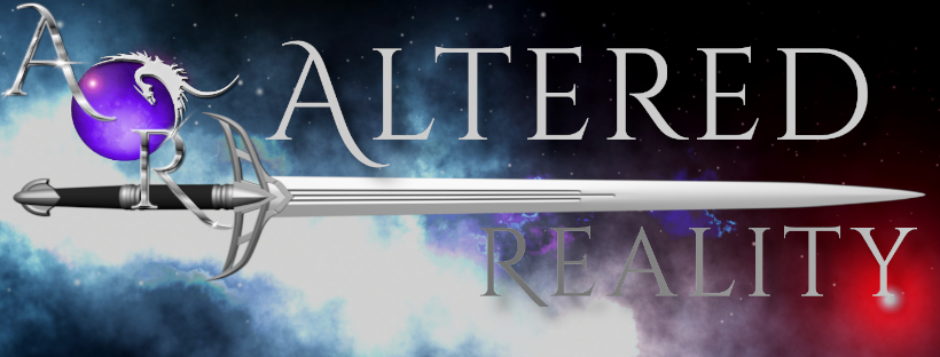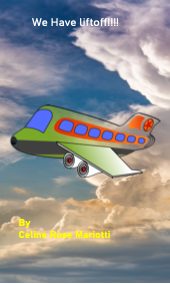Funny word, hope. It once had such broad applications. I have learned this in my research. People once said I hope that boy or girl likes me back, I hope my favorite streamer is renewed, I hope for peace, I hope for clean air and seas, I hope the probe finds water on Mars (wherever that is), I hope I hope I hope. Now, our hope is narrow as the point of a scorpion’s sting. We scrabble in the red clay mud and hope for a good harvest. We scavenge in the abandoned cities and towns and hope for a piece of aluminum or a box of bullets. We hope to wake in the morning and find we are still alive. We look at the swell of our bellies and hope that what comes out is still human.
The truth of the matter is the first of the scorpion children was born in Himachal Pradesh near the end of the Big Dry, just before the sixth Kashmir War burned hot and pulled the rest of the world into the flames. Few local records remain of that time. Memories have faded. The chaos was all-consuming. Too many EMPs shredding unprotected networks, too many malwAIr strikes sideswiping collateral damage across the web and infecting its tendrilous Alexandrias.
The lore, passed down to children in their crèches by day and retold among adults around the fires at night, speaks of the flickering screen images, the glowing slag heaps that had been New Delhi, Lahore, and Kunming. No one really cares to remember anything else. Better to focus on how to survive in the gone-away world.
Mostly they believe—and many of the old records I scoured repeat the falsehood—the scorpion children were born from the atomic wreckage, the residual radiation wreaking havoc on those unlucky few who were far enough away from the blasts to survive, but close enough to receive a nonlethal dose of DNA-mucking isotopic ghosts. Or perhaps a once-directed biophage running rampant after release. With no one left in the various command and control centers to end the vectors once they’d run their course, they kept running that course, over and over, until survivors at the edges of the infected zones got just enough of the sick to muddle their genes.
But I found something. In the French archives, of all places, the old data cache of a group called Médecins Sans Frontières, a group of medicos who had a field hospital in Dharamshala before the War. One of the docs there, name of Bechere, wrote of a baby who came out with skin like rough leather, hands with nothing but thumbs and a single, sharp-nailed finger, a second pair of arms growing from the sides of the chest, and—Chukwu preserve—a blasted tail hanging down between its little legs. They thought the child an unusual mutation at first, and one that would not long survive. They took it away from its mother before she saw it, took it to a dark room to pass on in peace like they did with all the muties born there (and there were many, the report said, more every year).
Only it didn’t die. The skin hardened overnight, forming stiff plates over the child’s body. Doc Bechere called it a semitransparent polysaccharide. I didn’t know those words the first time I read them, but in another weblore cache, I read it’s another term for what the shell of spiders and crabs and such are made of, sometimes even mushrooms. Which all agrees with what I know of the scorpion children.
If Bechere had known what we know, they wouldn’t have left one of the nurses alone with it. They found his body the next morning, stiff and cold and with the mark of the sting in his palm. The flesh of one forearm chewed away. Of the child, there was no sign. Surely it scuttled off through a ventilation duct or sewer main, looking for a dry, dark nest. A place where it could grow and molt, grow and molt, grow and molt. A place from which to hunt.
There may have been others before that one in Dharamshala, but it doesn’t matter. What matters is they were here before the war, that it wasn’t the bombs or the viruses that birthed them. It was something else. Something new, something…independent. I have a theory about that, and I hope it’s wrong.
There’s that word again.
The okenye says I shouldn’t concern myself with such things. That we have enough to worry about, with the rains and the fields and the wall, the seeds that bear fewer germinations every generation, both plant and human. With spears and bows and making bullets from bent copper pipe and chunks of cracked ore. We should focus inward. He’s told me this enough times that it’s turned into threadbare, meaningless rote. There’s nothing for us out in the world except what the scavengers bring home. There’s no other settlement we’ve ever found. No other humans alive. Just scorpions scuttling over the grave of civilization.
But in keeping this old acer running, in my maintenance of the suncell (as my nna nna taught me, bless his memory), in my combing through the threads of the ghost web for old wisdom, the digital crumbs of the gone-away world, I have given my people a few pieces of treasure. The crop rotations that have kept our weakling seeds as productive as they’ve been, the use of our urine to make gunpowder. How to ferment table beer when the water is fouled, and how to spot the signs of blight in the corn before the whole crop is ruined. The diagram of the weak points in a scorpion’s armor, created by a half-awake decommed military AI that died after sharing it with me.
All of these would have been lost to time had I not found them, and they’ve bought me a measure of freedom.
And so I hunt for knowledge instead of laboring in the fields, instead of walking the wall and listening for the rustle in the brush, the chittering as they call to one another (enough to turn the bowels to water!). I seek the electronic ghosts of lost libraries instead of combing the wreckage of Gembu and Sambolabbo for scrap metal and stone and guns and books. I sit in my small shelter, hunched over the acer, and scour the threadbare wreckage of the web for pieces of a puzzle. Cataloguing origins, looking for other weaknesses. A hint of how we might undo what has been done. A whisper of larger hope, of how we might survive and remain human. Every year more scorpion children are born to us and fewer who are untouched by the taint survive. We shrink upon ourselves, like a plucked tomato in the sun.
Every evening I sit before the acer, terrified it will have given up the last of its electronic ghost and refuse to boot. I look into the blackness of the sky, hoping one of the old cubesats my nna nna told me about is still active, still beaming down the holy whyfire.
Then the screen glows and the drive whirs, and my terror shifts to a deeper place, that I will try to connect to the virtual remains of the gone-away world and find nothing waiting. And when I am able to slip into the remnants of the vast web, the ghostly afterimage of the knowledge that came before, my fear finds the deepest place of all, the dark still water which reflects no light—that I will confirm once again we are alone, that we are all who remain, and that there is no hope.
Is it my imagination, or does it take longer each time? This is one of the things that make me think we might be the last. The slowdown. Somewhere there are generators, suncell or wavetop, maybe hydrothermal (this is a word I have recently learned and I like the way it sounds in my mind) and somewhere there are server rooms with racks of CPUs and cooling fans running on those generators, and these things are buttressing the crumbling invisible vastness of knowledge we once held. But they must be dying. Rusting, breaking down one by one in the dust and fire and flood. That means there’s no one to maintain them.
I hear the sentries call to each other along the top of the wall. The lanterns are lit, and they peer into the dark, listening for the rustle. The click-clack. The chitter. The scorpions are active in the cool of night.
They hunt.
A blink at the bottom of the screen. A long-forgotten app, its icon a winged sandal in soft blue, has changed. There’s a red square at the corner, and in the square is the number 1. My finger shakes and it takes me two tries to tap the icon. The acer hesitates and the fan whirs as the app struggles to open. At last a small screen appears. ‘Mercury’ is bannered across the top in white, overlaying a blue background. A popup asks me to enter my name, so I type it into the waiting space and the window retreats, leaving two boxes. The bottom is white and empty. The top box is larger, that soft blue color, and in it I see words in white. The words I see are
“Hello? Anyone is there?”
![]()






